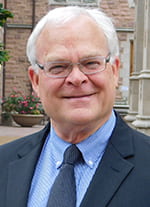New estimates on the number of children around the globe who are building assets in CDAs.
Over 15 million children have built assets in Child Development Accounts (CDAs), according to new estimates in a brief by Li Zou and Michael Sherraden with the Center for Social Development in the Brown School at Washington University.
Zou and Sherraden say that the number will grow as CDA policies and programs with automatic enrollment cover more and more newborns.
“These new estimates offer a glimpse at what’s possible with the CDA model,” Sherraden said, adding, “We envision a world where every child is born with an account that accumulates assets for investments in education and other developmental priorities.” Sherraden is the George Warren Brown Distinguished University Professor at Washington University and founding director of the Center for Social Development in the university’s Brown School.
First proposed by Sherraden, CDAs are investment accounts designed to accumulate assets for meeting key moments in a child’s life – for example, higher education, a home, and other priorities.
“We envision a world where every child is born with an account that accumulates assets for investments in education and other developmental priorities.”
Michael Sherraden
In Sherraden’s design, the investment vehicles are opened automatically near the point of a child’s birth and seeded with a substantial initial deposit, the size of which depends upon the child’s circumstances. Children from disadvantaged families receive larger deposits.
CDAs have been tested in the ongoing SEED for Oklahoma Kids experiment and implemented in numerous settings.
The new brief presents estimates for the number of children with assets in such accounts in six countries: Singapore, the United Kingdom, Korea, Canada, Israel, and the United States. CSD experts provided advice and technical assistance for the CDA policies in each of these settings.
“While we celebrate that 15 million children own assets in CDAs, we also express our gratitude to our dedicated global partners for working with us fiercely over the years to make it possible for these 15 million children,” said Zou, CSD’s international director and the co-director of the Next Age Institute at Washington University.
The United Kingdom has the largest number of children with CDA assets. All children born there between 2002 and 2011, about 6.1 million of them, were covered by the Child Trust Fund policy. The policy stopped opening new accounts in 2011, after a change of government, but assets continued to grow for the original beneficiaries. Zou and Sherraden report that the assets amounted to $12 billion in 2020.
Israel and the United States are on pace to surpass the United Kingdom.
Israel’s Saving for Every Child Program covers child citizens of Israel and Palestinian children in East Jerusalem. Zou and Sherraden report that, as of March 2022, 3.99 million children had assets through the program.
In the United States, approximately 1.2 million children have assets in CDAs, and that number continues to grow.
Pennsylvania’s Keystone Scholars program adds an estimated 140,000 newborns to its rolls every year. In California, the CalKIDS program launched this year and is scheduled to begin opening accounts for infants born on or after July 1. An estimated 400,000 to 500,000 children will be enrolled annually in the Sunshine State’s new CDA program.
Nebraska, Illinois, Maine, Nevada, and Rhode Island also have statewide programs.
Zou and Sherraden say that CDA policy has even greater potential as a global structure for reducing inequality.
Within that structure, the accounts could serve as instruments for distributing funds from philanthropies, international aid organizations, nonprofits, and other contributors, public and private.
“International aid might be transformed in this process,” Zou and Sherraden write, “avoiding the ‘leaky bucket’ of bureaucratic inefficiency and local corruption by sending resources directly to individuals and families.”
CDA policy, they note, could be “an efficient and effective global project for developing the next generation.”
Read the new brief and learn more about the Center for Social Development’s work with Child Development Accounts.


